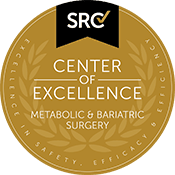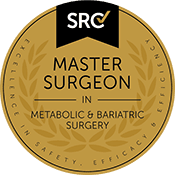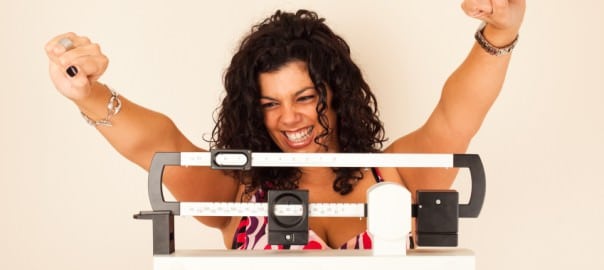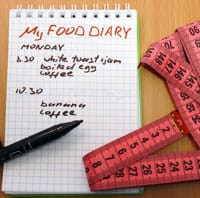One of the weight loss procedures that Dr. V. Kuzinkovas receives a lot of questions about is Lap-Band surgery. He thought it would be wise to address the four most common questions about Lap-Band in a blog post. If you have additional questions about Lap-Band that aren’t covered in this post, please feel free to schedule an informational consultation with Dr. Kuzinkovas at Advanced Surgicare to discuss.
What is Lap-Band surgery?
The Lap-Band is a gastric banding device designed to limit food intake. During Lap-Band surgery, an adjustable silicone band is placed around the upper portion of the stomach. The band creates a small pouch to hold food, with a narrow passageway from the pouch to the lower, larger portion of the stomach.
Lap-Band surgery can be performed laparoscopically (through several small incisions) for a shorter recovery and greater patient comfort.
After surgery, the stomach holds less food, and the food passes from the pouch to the lower stomach and intestines much slower than normal. Because of these two factors, the patient feels fuller after eating less food. The result is rapid, steady weight loss.
Is the Lap-Band removable?
The Lap-Band is removable, should a complication arise after surgery. Sometimes it can be removed laparoscopically. If the band is removed, the stomach returns to its original shape. The band can also be tightened or loosened as needed, by adding or removing saline solution to the band through an injection port.
How much weight will I lose after surgery (and how quickly)?
Every patient is different, so it is difficult to say. Your weight loss will vary, depending on how committed to healthy diet and exercise habits you are. Also, whether the band is placed correctly can affect how much weight you lose. If it is too tight, you will lose too much weight quickly; if it is not tight enough, you may not lose enough weight.
Typically, Lap-Band patients lose 0.5 – 1 kg per week. The majority of weight loss occurs within the first year of surgery.
Am I a candidate for Lap-Band surgery?
Lap-Band candidacy is determined after a one-on-one consultation with Dr. Kuzinkovas. During your consultation, he will perform a physical examination, try to learn more about your lifestyle and health history and ask about your weight loss goals. If he does not feel Lap-Band is suitable for your case, he will recommend an alternative treatment option.
Generally, Lap-Band candidates are individuals who:
- are 18 years or older
- have a BMI of at least 40, or 30-35 with at least one obesity-related health condition
- are not able to sustain long-term weight loss through diet or exercise
- are prepared to make life-altering changes
- are not pregnant
Learn More about the Lap-Band
To learn more about the Lap-Band surgery and what it entails, schedule a personal consultation with Dr. Kuzinkovas. Please call 1-300 551 533 today.













